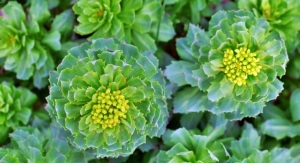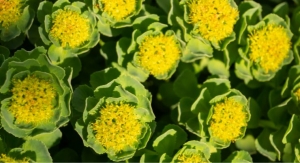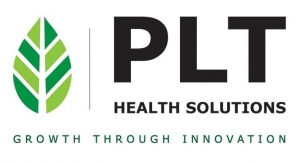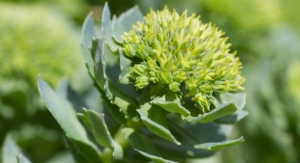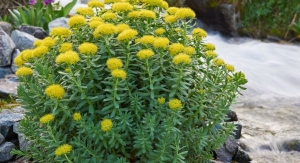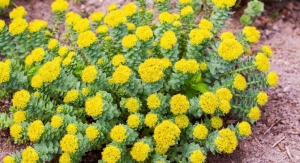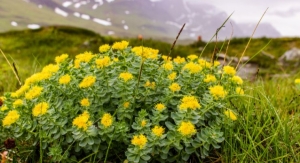10.31.17
Botanical Liaisons, LLC and NaturPro Scientific, LLC have jointly completed a successful ingredient identity verification program for RhodioLife Rhodiola rosea L.—which is marketed in the United States by PLT Health Solutions, Inc. Verification of RhodioLife identity was based on a comprehensive set of criteria, including supplier verification, chain of custody review and identity testing using HPLC and DNA testing. The authenticity of Rhodiola dietary supplement products has been called into question by the Oct. 2017 publication of “Adulteration of Rhodiola (Rhodiola rosea) Rhizome, Root and Extracts” by the American Botanical Council (ABC). The report, authored by top natural products experts, outlined that less expensive Rhodiola species grown in China may be commonly added to the intended species, resulting in its adulteration.
According to Trish Flaster, CEO and founder of Botanical Liaisons, who led the review team, a spike in demand for Rhodiola in the U.S. and globally may be responsible for quality and identity issues. “The global demand for Rhodiola rosea has rapidly increased, which has led to shortages of authentic material. Most harvesting comes from alpine regions and forests, where supplies can be depleted quickly without replanting and sustainability efforts,” said Ms. Flaster. “I applaud PLT Health Solutions for taking the initiative to develop a sustainable supply by building relationships with rural co-ops in the Altai Mountains,” she added.
Rhodiola rosea has been marketed to support sustained energy, mood, physical performance and an increased capacity to handle stress. Traditionally grown and consumed in North Asia and Russia, the R. rosea species may be often confused with other Rhodiola species in global dietary and herbal supplement markets. True R.rosea is believed to be differentiated from other Rhodiola species by its yellow flowers, and presence of significant levels of unique compounds called rosavins in authentic root extracts. RhodioLife’s “natural fingerprint” composition consistently provides the spectrum of rosavins from the root that are considered responsible for its biological activity, such as rosavin, rosarin, rosin and salidroside. RhodioLife preserves R. rosea’s natural phytochemical fingerprint, based on both the percentage and relative ratios of rosavins.
According to Blake Ebersole, CEO of NaturPro Scientific, ingredients like RhodioLife are different from the start. “For RhodioLife, responsible wildcrafting and sustainable sourcing is managed by a single entity and collection point, in the Altai Mountains, on the border of Russia, Mongolia, Kazakhstan and China. A Collection Management Plan (CMP), in accordance with WHO Good Agricultural and Collection Practices (GACP), is used to ensure responsible harvesting of material. This plan includes requirements for replanting, harvesting of mature plants, and ensures fair prices, safety and training for workers,” he said. “We appreciate the significant investment in quality, transparency and traceability made by PLT and its ingredient partner Nektium Pharma in Las Palmas, Spain to develop and verify their source of Rhodiola.”
According to Seth Flowerman, executive vice president of PLT Health Solutions, the independent verification conducted by Botanical Liaisons and NaturPro Scientific on RhodioLife is in line with the company’s PLT360 transparency and trust building initiative that was introduced in 2015. “PLT360 is a business-wide commitment by PLT Health Solutions to developing transparent ingredient solutions that our customers can confidently supply to their own customers—knowing that these ingredients are safe, of high quality, efficacious and harvested and manufactured in a sustainable way,” he said. “Going beyond traditional quality control programs, PLT360 examines every aspect of an ingredient that we supply to deliver a best-in-class solution in a program that tracks Ingredient Integrity, Quality, Sustainability and Efficacy.”
According to Trish Flaster, CEO and founder of Botanical Liaisons, who led the review team, a spike in demand for Rhodiola in the U.S. and globally may be responsible for quality and identity issues. “The global demand for Rhodiola rosea has rapidly increased, which has led to shortages of authentic material. Most harvesting comes from alpine regions and forests, where supplies can be depleted quickly without replanting and sustainability efforts,” said Ms. Flaster. “I applaud PLT Health Solutions for taking the initiative to develop a sustainable supply by building relationships with rural co-ops in the Altai Mountains,” she added.
Rhodiola rosea has been marketed to support sustained energy, mood, physical performance and an increased capacity to handle stress. Traditionally grown and consumed in North Asia and Russia, the R. rosea species may be often confused with other Rhodiola species in global dietary and herbal supplement markets. True R.rosea is believed to be differentiated from other Rhodiola species by its yellow flowers, and presence of significant levels of unique compounds called rosavins in authentic root extracts. RhodioLife’s “natural fingerprint” composition consistently provides the spectrum of rosavins from the root that are considered responsible for its biological activity, such as rosavin, rosarin, rosin and salidroside. RhodioLife preserves R. rosea’s natural phytochemical fingerprint, based on both the percentage and relative ratios of rosavins.
According to Blake Ebersole, CEO of NaturPro Scientific, ingredients like RhodioLife are different from the start. “For RhodioLife, responsible wildcrafting and sustainable sourcing is managed by a single entity and collection point, in the Altai Mountains, on the border of Russia, Mongolia, Kazakhstan and China. A Collection Management Plan (CMP), in accordance with WHO Good Agricultural and Collection Practices (GACP), is used to ensure responsible harvesting of material. This plan includes requirements for replanting, harvesting of mature plants, and ensures fair prices, safety and training for workers,” he said. “We appreciate the significant investment in quality, transparency and traceability made by PLT and its ingredient partner Nektium Pharma in Las Palmas, Spain to develop and verify their source of Rhodiola.”
According to Seth Flowerman, executive vice president of PLT Health Solutions, the independent verification conducted by Botanical Liaisons and NaturPro Scientific on RhodioLife is in line with the company’s PLT360 transparency and trust building initiative that was introduced in 2015. “PLT360 is a business-wide commitment by PLT Health Solutions to developing transparent ingredient solutions that our customers can confidently supply to their own customers—knowing that these ingredients are safe, of high quality, efficacious and harvested and manufactured in a sustainable way,” he said. “Going beyond traditional quality control programs, PLT360 examines every aspect of an ingredient that we supply to deliver a best-in-class solution in a program that tracks Ingredient Integrity, Quality, Sustainability and Efficacy.”







